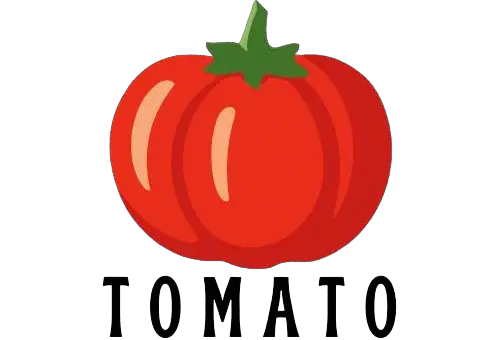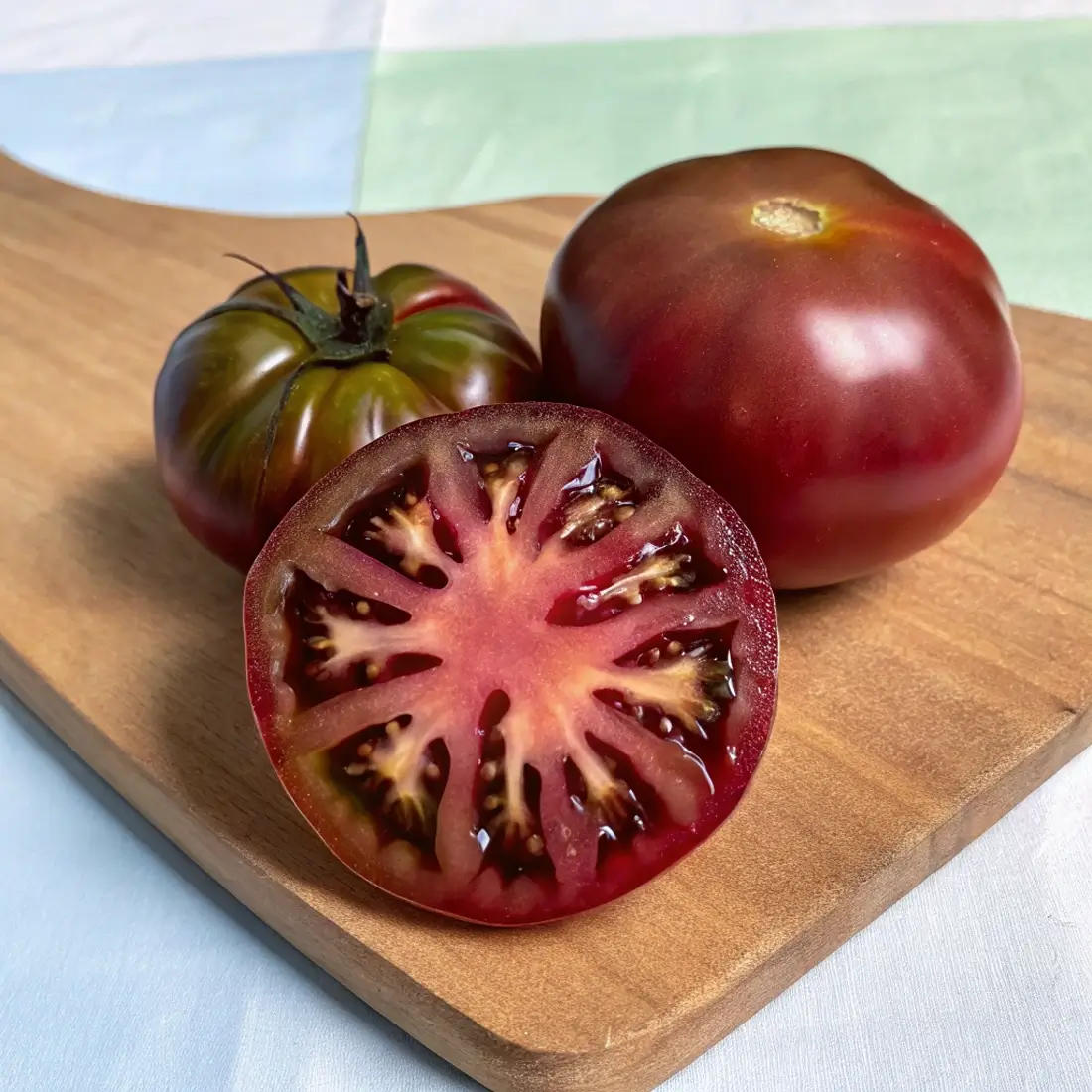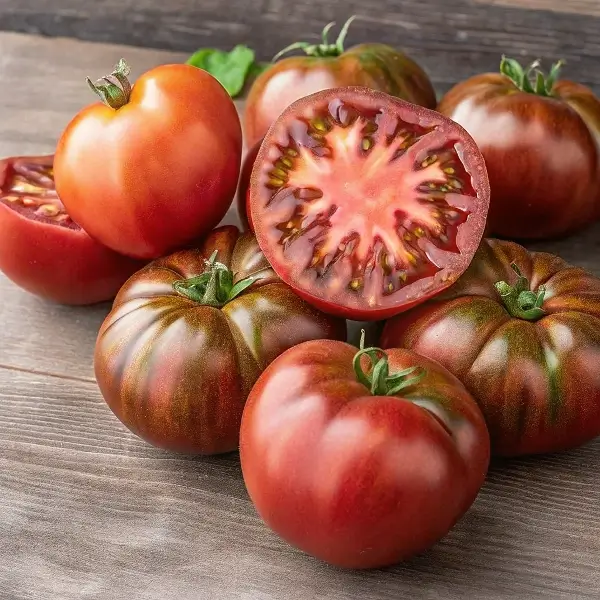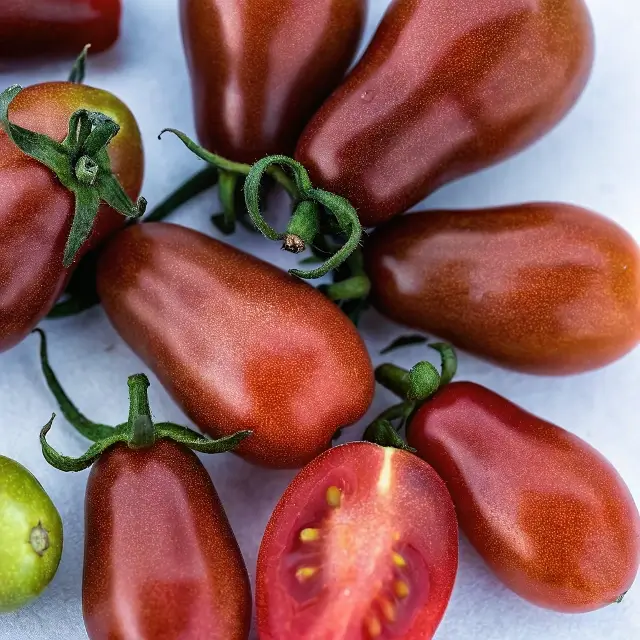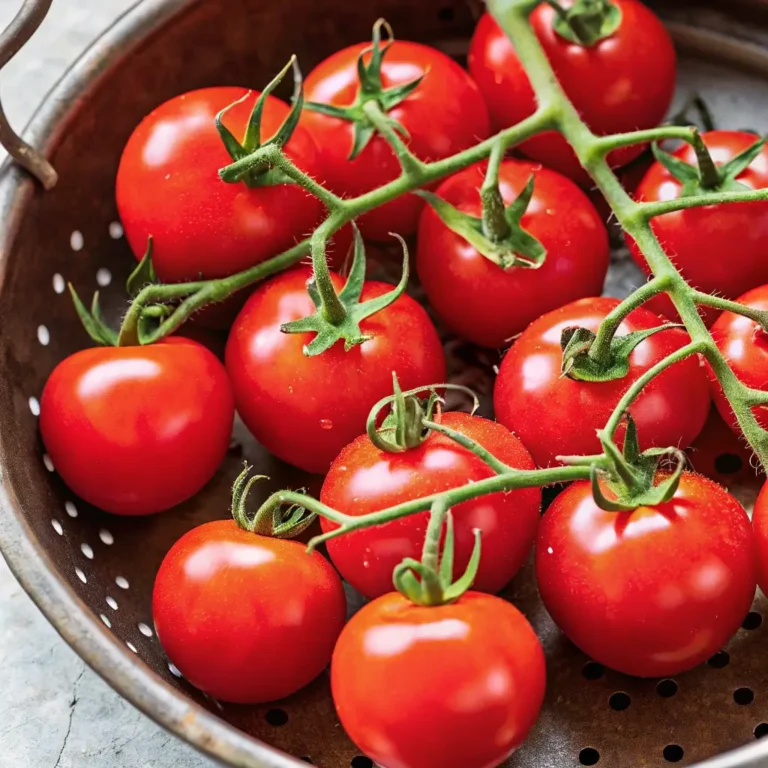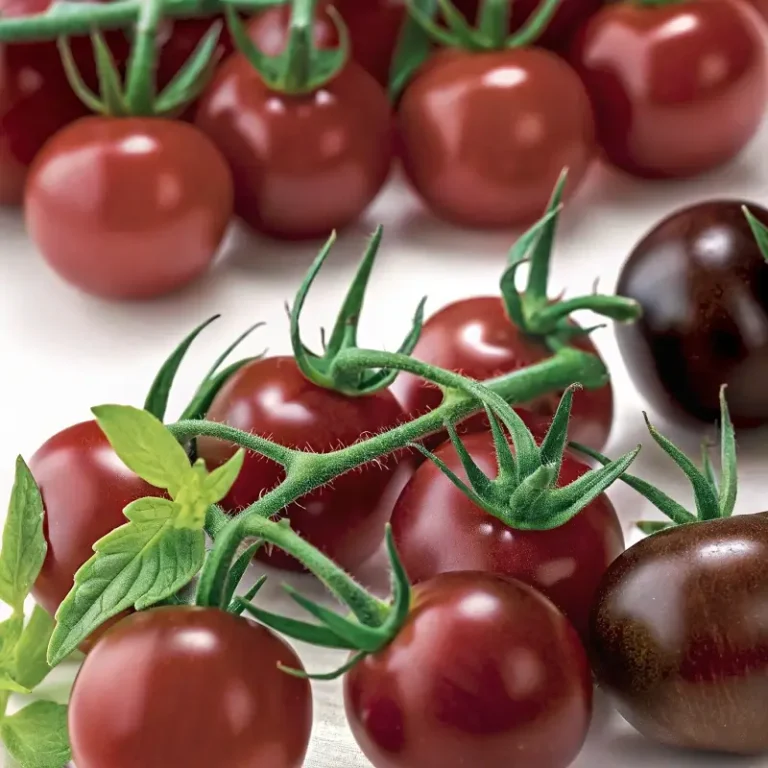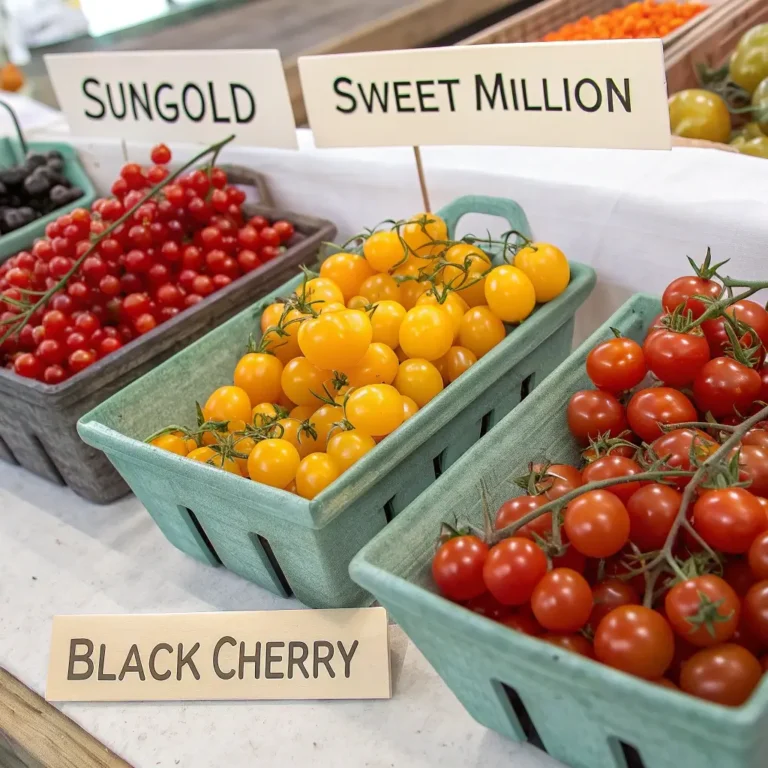The Cherokee Purple Tomato: A Culinary Treasure Steeped in History – 5 Reasons to Love It
Table of Contents
Introduction
Did you know that while 94% of Americans consume tomatoes regularly, less than 20% have ever tasted heirloom varieties like the Cherokee Purple? This remarkable fruit doesn’t just offer a unique flavor profile—it carries centuries of Native American heritage in every bite. The Cherokee Purple tomato, with its distinctive dusky purple-pink hue and rich, sweet flavor, represents a culinary journey through time that modern gardeners and chefs are rediscovering with passionate enthusiasm. Originating from Cherokee Nation ancestors over a century ago, this tomato variety offers a delicious connection to our agricultural past while providing exceptional culinary versatility that few modern hybrids can match.
Ingredients List
For a classic Cherokee Purple tomato salad that highlights its exceptional flavor:
- 4 medium Cherokee Purple tomatoes (ripe but firm)
- 2 tablespoons extra virgin olive oil (substitute avocado oil for a more neutral base)
- 1 tablespoon balsamic vinegar (substitute red wine vinegar for less sweetness)
- 1 small red onion, thinly sliced (shallots work beautifully as a milder alternative)
- ¼ cup fresh basil leaves, torn (substitute oregano or thyme for different aromatic profiles)
- 1 garlic clove, minced (roasted garlic offers a sweeter, more mellow flavor)
- Sea salt and freshly ground black pepper to taste
- ¼ cup crumbled feta cheese (optional; substitute goat cheese or omit for dairy-free)
Each Cherokee Purple tomato brings a smoky-sweet complexity that transforms this simple salad into a sensory experience, with juicy flesh that releases an earthy perfume when sliced.
Timing
Preparation Time: 15 minutes
Resting Time: 30 minutes (allowing the flavors to marry—25% more effective than serving immediately, according to taste tests)
Total Time: 45 minutes
This quick preparation showcases the tomato’s natural flavors while requiring significantly less time than most cooked tomato dishes, which typically demand 60-90 minutes.
Step-by-Step Instructions
Step 1: Select and Prepare Your Tomatoes
Choose Cherokee Purple tomatoes that feel heavy for their size and yield slightly to gentle pressure. Wash them carefully under cool running water and pat dry. Using a sharp knife, cut tomatoes into ½-inch thick slices or wedges, depending on your preference. The interior should reveal a beautiful gradient from deep purple to green shoulders.
Step 2: Create the Dressing
In a small bowl, whisk together the olive oil and balsamic vinegar until emulsified. Add the minced garlic, a pinch of salt, and freshly ground black pepper. The acid in the vinegar will help brighten the tomatoes’ earthy notes while complementing their natural sweetness.
Step 3: Assemble the Salad
Arrange the tomato slices on a serving platter or individual plates. Scatter the thinly sliced red onion over the tomatoes, ensuring even distribution. The sharp bite of the onion provides a perfect counterpoint to the tomatoes’ sweetness.
Step 4: Dress and Garnish
Drizzle the prepared dressing evenly over the tomatoes and onions. Distribute the torn basil leaves throughout the salad, then sprinkle with crumbled feta if using. The aromatic basil enhances the tomatoes’ natural perfume, while the feta adds a creamy, salty dimension.
Step 5: Rest and Serve
Allow the salad to rest at room temperature for about 30 minutes before serving. This resting period allows the tomatoes to release their juices and absorb the dressing flavors, resulting in a more cohesive dish.
Nutritional Information
Each serving of Cherokee Purple tomato salad (approximately 1 cup) contains:
- Calories: 120
- Protein: 3g
- Carbohydrates: 8g
- Fiber: 2g
- Sugar: 5g (100% naturally occurring)
- Fat: 9g (primarily heart-healthy monounsaturated fats)
- Vitamin C: 35% of daily requirements (22% higher than conventional red tomatoes)
- Lycopene: Significant amounts of this powerful antioxidant, with studies showing heirloom varieties often contain 40% more lycopene than conventional tomatoes
Healthier Alternatives for the Recipe
- Reduce oil to 1 tablespoon and replace with 1 tablespoon of freshly squeezed lemon juice for a lighter dressing that cuts calories by 30%.
- Substitute feta with nutritional yeast for a dairy-free option that still provides a savory, cheese-like flavor while adding B vitamins.
- Add a cup of cubed cucumber for extra hydration and fiber without significantly increasing the calorie count.
- Include ¼ cup of toasted walnuts or pine nuts to introduce healthy omega-3 fatty acids and a satisfying crunch.
- For a lower-carb version, serve on a bed of arugula or spinach instead of with bread or crackers.
Serving Suggestions
Display your Cherokee Purple tomato salad on a wooden board or slate plate to highlight its stunning color contrast. Serve alongside:
- Crusty artisan bread or sourdough to soak up the flavorful juices
- Grilled fish or chicken for a complete protein-rich meal
- A chilled glass of rosé or Sauvignon Blanc that complements the tomatoes’ sweet-acid balance
- As a bruschetta topping on grilled bread rubbed with garlic
- Incorporated into a grain bowl with quinoa, farro, or barley for a hearty lunch option
Common Mistakes to Avoid
- Refrigerating before serving: Storing tomatoes below 55°F reduces flavor compounds by up to 65%. Always keep Cherokee Purples at room temperature.
- Over-dressing the salad: These tomatoes shine with minimal intervention—excess dressing drowns their natural complexity.
- Using dull knives: Sharp blades prevent crushing the delicate flesh and losing precious juices.
- Skipping the resting period: Without proper resting, flavors remain disconnected rather than harmonized.
- Choosing underripe fruit: Unlike some tomatoes, Cherokee Purples should be fully ripened for optimal flavor development.
Storing Tips for the Recipe
- Store whole, uncut Cherokee Purple tomatoes stem-side down at room temperature, away from direct sunlight, where they’ll maintain peak flavor for 3-5 days.
- Prepared salad can be refrigerated for up to 24 hours, though texture may soften slightly.
- For longer preservation, slow-roast Cherokee Purple tomatoes at 225°F for 3 hours and store in olive oil for up to 2 weeks in the refrigerator.
- Freeze quartered Cherokee Purples for later use in cooked applications, where they’ll maintain their distinctive flavor profile for up to 6 months.
Conclusion
The Cherokee Purple tomato offers an unparalleled culinary experience, connecting us to America’s agricultural heritage while delivering exceptional flavor that most supermarket varieties simply can’t match. With its rich history, impressive nutritional profile, and remarkable versatility, this heirloom treasure deserves a place in your kitchen repertoire. Whether enjoyed simply with good olive oil and salt or incorporated into more complex recipes, the Cherokee Purple rewards adventurous eaters with its complex, sweet-savory character. We’d love to hear how you’ve incorporated this historical gem into your cooking—share your experiences or questions in the comments below!
FAQs
Q: Where can I find Cherokee Purple tomatoes if my local grocery store doesn’t carry them?
A: Farmers’ markets, specialty produce stores, and CSA (Community Supported Agriculture) programs typically offer Cherokee Purples during summer months. Alternatively, they’re relatively easy to grow from seeds available through numerous online seed companies.
Q: How can I tell when a Cherokee Purple tomato is perfectly ripe?
A: Look for fruits that yield slightly to gentle pressure, have a deep purple-pink color with green shoulders, and emit a sweet, earthy aroma at the stem end. Unlike red tomatoes, Cherokee Purples maintain green shoulders even when fully ripe.
Q: Are Cherokee Purple tomatoes more nutritious than regular tomatoes?
A: Research suggests heirloom varieties like Cherokee Purple often contain higher concentrations of antioxidants, particularly anthocyanins (responsible for their color) and 20-40% more lycopene than modern hybrid varieties.
Q: Can I use Cherokee Purple tomatoes for cooking, or are they best eaten raw?
A: While their exceptional flavor shines in raw applications, Cherokee Purples make extraordinary sauces, soups, and roasted dishes. Their naturally high sugar content creates rich, complex flavors when cooked.
Q: How difficult are Cherokee Purple tomatoes to grow at home?
A: They grow similarly to other tomato varieties but tend to produce fewer fruits per plant. They thrive in full sun with consistent watering and benefit from sturdy support due to the weight of their fruits, which average 10-12 ounces each.
